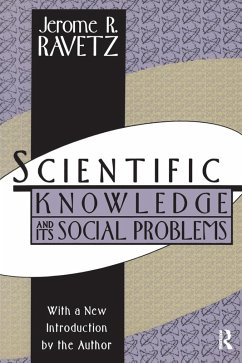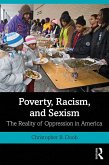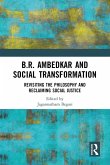Science is continually confronted by new and difficult social and ethical problems. Some of these problems have arisen from the transformation of the academic science of the prewar period into the industrialized science of the present. Traditional theories of science are now widely recognized as obsolete. In
Scientific Knowledge and Its Social Problems (originally published in 1971), Jerome R. Ravetz analyzes the work of science as the creation and investigation of problems. He demonstrates the role of choice and value judgment, and the inevitability of error, in scientific research. Ravetz's new introductory essay is a masterful statement of how our understanding of science has evolved over the last two decades.
Dieser Download kann aus rechtlichen Gründen nur mit Rechnungsadresse in A, B, BG, CY, CZ, D, DK, EW, E, FIN, F, GR, HR, H, IRL, I, LT, L, LR, M, NL, PL, P, R, S, SLO, SK ausgeliefert werden.









